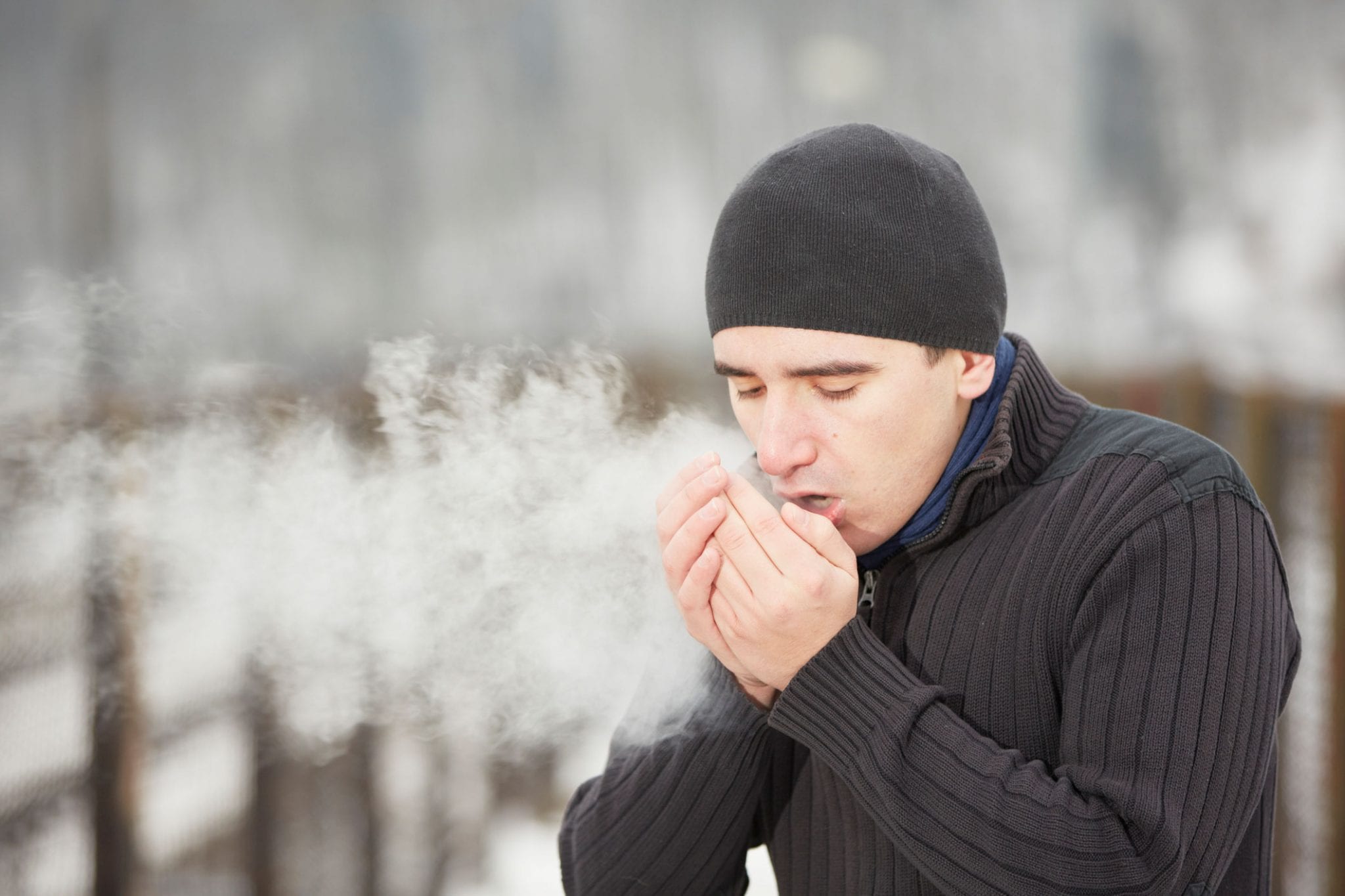Benefits from exercising in the winter include helping beat seasonal blues, increasing energy levels and boosting your immune system in cold and flu season, but breathing cold air can have adverse effects on your body.
“The rate of heart attacks may be as much as 30 percent higher in the winter, although the reasons are not clear,” says Dr. Paul Thompson, chief of cardiology and physician co-director of the Hartford HealthCare Heart & Vascular Institute. “Cold weather can increase blood pressure and cholesterol levels, probably by constriction the skin blood vessels, which concentrates the blood and can lower the threshold for cardiovascular events.”
Breathing in cold air when exercising or just going from the house to the car can affect heart health in even the healthiest people. Dr. Thompson says breathing cold air through the mouth stimulates nerve endings at the back of the throat, causing the heart’s coronary arteries to narrow.
Also:
- Body temperature falls, causing blood vessels under the skin to narrow and send warm blood away from the surface to reduce the amount of heat lost through the skin.
- The risk of angina, which is chest pain caused by narrowing of the heart’s coronary arteries, and blood clotting increases.
Easing into outdoor activities, whether clearing the driveway of snow or taking the first few runs down the ski slope, is the best way to avoid shocking the body in the cold, says Dr. Thompson.
“A study noted that the risk of heart attack for winter tourists is greater in the first two days of their vacation because they jump into intense physical activity under harsh winter conditions and their body doesn’t have time to adjust,” he says. “Introduce activity gradually. Shovel for 15 minutes, then go inside and rest for an equal amount of time.”
Dr. Thompson offers the following tips for exercising outdoors in cold weather:
- Keep the body warm by dressing in layers that can be removed when you begin to sweat and added back on as you cool down. Wear two layers on your hands and feet.
- Wear fabrics that wick the moisture away from your body to avoid chills.
- Cover your head and ears, where as much as 50 percent of your body head escapes.
- Avoid eating a large meal or drinking alcohol before going out.
- Pay attention to your body. If you feel chest tightness or discomfort, nausea or are short of breath, seek medical attention.
For more information on the Hartford HealthCare Heart & Vascular Institute and to find a provider near you, click here.


